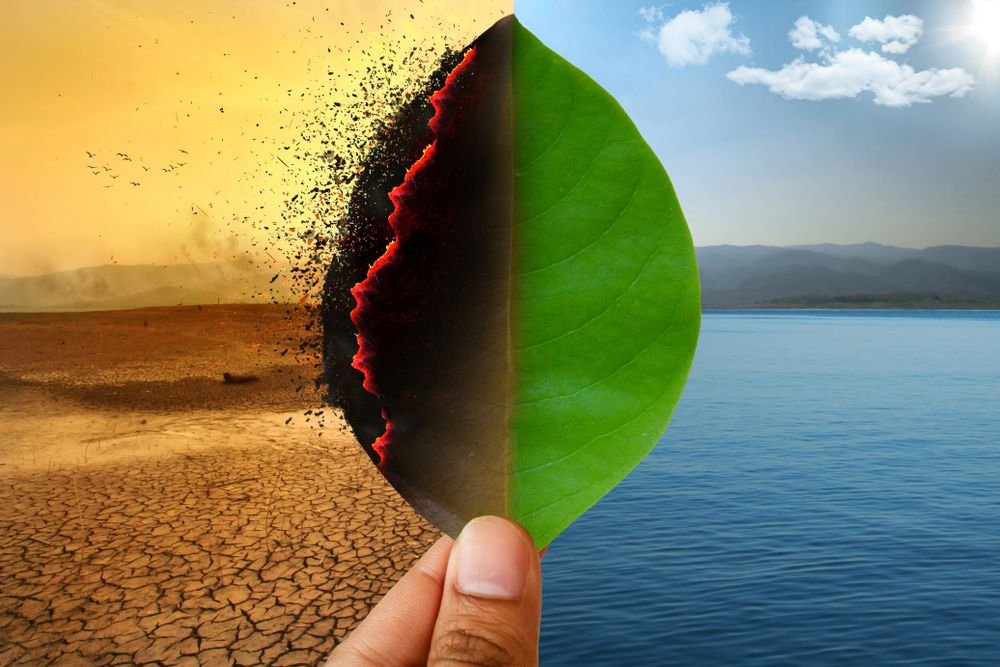
Iran, a nation with a rich cultural heritage and natural beauty, is facing an environmental crisis of alarming proportions. The destructive policies and practices of the regime have inflicted irreparable damage on the country’s environment, resulting in devastating consequences for both the ecosystem and the well-being of its citizens.
This article sheds light on the regime’s role in the destruction of Iran’s environment, highlighting key areas such as deforestation, desertification, exploitation of natural resources, mismanagement of water resources, air pollution, degradation of coastal areas, and suppression of environmental activism.
As part of a comprehensive plan for a future Iran, Mrs. Maryam Rajavi‘s ten-point plan includes the ninth clause: Protection and rehabilitation of the environment, which has been massacred under the rule of the mullahs. This clause emphasizes the urgent need to address the environmental crisis and work towards restoring and safeguarding Iran’s natural heritage.
1- Exploitation of Natural Resources: Under the regime’s rule, Iran has witnessed the unchecked exploitation of its natural resources. The regime’s focus on short-term economic gains has resulted in deforestation, habitat loss, and environmental degradation. Forests have been indiscriminately cleared for commercial purposes, leading to the loss of valuable ecosystems and biodiversity. Additionally, mining activities, often unregulated and unsustainable, have scarred the landscape and polluted water bodies, posing significant threats to the local ecosystems.
2- Mismanagement of Water Resources: Iran is grappling with a severe water crisis, primarily due to the regime’s mismanagement of water resources. Unregulated dam construction and excessive groundwater extraction have disrupted river flows, depleted aquifers, and caused the drying up of wetlands. The lack of investment in sustainable agriculture and modern irrigation systems exacerbates the problem, leading to water scarcity and contamination of vital water sources.
3- Air Pollution: Iran’s major cities, particularly Tehran, suffer from hazardous levels of air pollution. The regime’s failure to enforce environmental regulations and combat pollution sources has led to serious health risks and reduced quality of life for citizens. Vehicle emissions, outdated and inefficient infrastructure, and the burning of low-quality fuels contribute to the toxic air residents are forced to breathe, resulting in respiratory diseases and other health issues.
4- Degradation of Coastal Areas: Iran’s coastal areas, known for their unique ecosystems and biodiversity, have also fallen victim to the regime’s destructive policies. Unregulated industrial activities, oil spills, and unsustainable fishing practices have harmed marine life and polluted coastal waters. The regime’s negligence in enforcing coastal protection measures and addressing climate change impacts exacerbate the degradation of these vital ecosystems.
5- Deforestation and Desertification: Deforestation and desertification pose significant threats to Iran’s environment. Rampant clearing of forests and unsustainable land-use practices have led to the loss of valuable ecosystems and increased desertification. The removal of forests not only contributes to the release of carbon dioxide, but also disrupts rainfall patterns, leading to drier and more arid conditions. Desertification, in turn, threatens agricultural productivity, exacerbates water scarcity, and displaces local communities.
6- Suppression of Environmental Activism: The regime actively suppresses environmental activists and hinders their efforts to raise awareness and advocate for change. Journalists, conservationists, and grassroots organizations advocating for environmental protection face harassment, intimidation, and imprisonment. This suppression stifles innovation, silences dissenting voices, and obstructs meaningful progress in addressing the environmental crisis.
Iran’s environment is in a state of peril, largely due to the destructive policies and practices of the regime. The exploitation of natural resources, mismanagement of water resources, air pollution, degradation of coastal areas, deforestation, desertification, and suppression of environmental activism collectively contribute to the environmental catastrophe gripping the nation. Urgent action is needed to reverse the damage, restore ecosystems, and protect the well-being of both nature and its inhabitants. This requires a shift in the regime’s priorities towards sustainable development, stricter enforcement of environmental regulations, and the promotion of a culture of environmental stewardship.